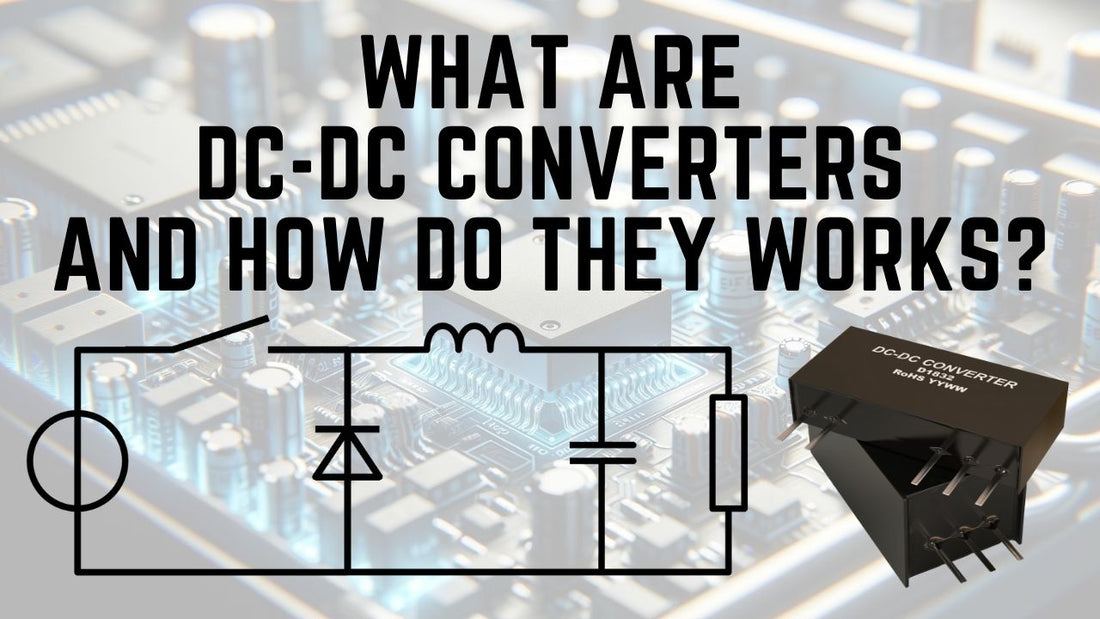What are DC-DC Converters
DC-DC Converters are engineered to convert direct current (DC) electrical power from one voltage level to another, facilitating a wide array of applications ranging from simple battery-powered devices to complex renewable energy systems.
At their core, DC-DC converters are electronic circuits designed to change the voltage level of DC power while maintaining the polarity of the input source. This process is vital in numerous applications where different devices operate at varying voltage levels, necessitating a reliable and efficient means of voltage conversion to ensure compatibility and operational efficiency.
Principles of Operation
The operation of DC-DC converters is based on the principle of energy storage and transfer through inductors and capacitors. By rapidly switching the flow of current on and off and controlling the duty cycle (the ratio of the on-time to the total switching period), these converters can effectively manipulate the voltage level. This switching action is controlled by electronic components such as transistors, which act as rapid switches, in conjunction with diodes that ensure current flow in the desired direction.
Types of DC-DC Converters
DC-DC converters come in various configurations, each tailored to specific needs and applications. The most common types include:
- Buck Converters: These converters step down the input voltage to a lower level, making them ideal for applications where a lower operating voltage is required from a higher voltage source.
- Boost Converters: In contrast to buck converters, boost converters step up the input voltage, providing a higher output voltage from a lower voltage source.
- Buck-Boost Converters: Combining the functionalities of buck and boost converters, buck-boost converters can either step up or step down the input voltage as needed, offering versatile voltage regulation capabilities.
- Isolated Converters: These converters incorporate a transformer to provide electrical isolation between the input and output, enhancing safety and noise reduction in sensitive applications.
Applications of DC-DC Converters
DC-DC converters find applications across a broad spectrum of fields, highlighting their versatility and importance:
- Portable Electronics
- Automotive Systems
- Renewable Energy Systems
- Telecommunications
Here some things to look for when comparing DC-DC for your projects.
- Input and Output Voltage Range
- Output Power Rating
- Efficiency
- Package Type and Size
- Operating Temperature Range
DC-DC converters bridge the gap between varying voltage requirements and enabling the seamless operation of a myriad of devices and systems. Their have the ability to efficiently convert and manage DC power in everyday consumer electronics to critical industrial and renewable energy systems.

